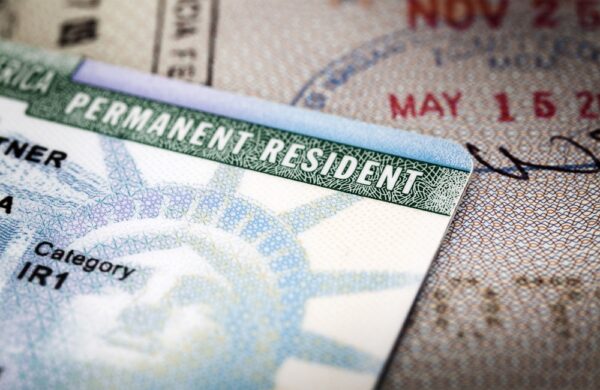No one can deny that the United States of America is one of the most popular countries on the planet to immigrate to. This resulted in her attracting the attention of foreigners from all over the world for an extended period of time. Many people wish to relocate to the United States from their home countries in search of a better life. When it comes to immigration, there are a variety of reasons why foreign nationals choose the United States of America over other countries.
Ways to Travel to USA as An Immigrant
Traveling to the United States as an immigrant can be an exciting yet complex journey, requiring careful planning and understanding of the various immigration pathways available. Whether you are seeking opportunities for work, family reunification, or educational advancement, here are several common ways to immigrate to the United States:
1. Family-Sponsored Immigration
Family reunification is a cornerstone of U.S. immigration policy. It is one of the ways to travel to the USA as an immigrant. If you have close relatives who are U.S. citizens or lawful permanent residents (green card holders), they can sponsor you for a green card. The most common categories include:
- Immediate Relatives: This includes spouses, unmarried children under 21, and parents of U.S. citizens. There are no numerical limits for these visas, making the process faster.
- Family Preference Categories: This includes adult children and siblings of U.S. citizens, and spouses and unmarried children of green card holders. These categories are subject to annual numerical limits, leading to longer wait times.
2. Employment-Based Immigration
The United States is a country where people's abilities are recognized. You are unable to take advantage of various job openings advertised on the Internet. If you are fortunate, your prospective employer will file a petition with the USCIS, which must be approved before you can apply for a work visa.
Depending on the situation, work visas can range from a short period of time to permanent resident status. Make certain that you are aware of your time limits and that you reapply, or you may face deportation. Deportation is still possible in some cases, so if you intend to remain in the country for an extended period of time, you may want to consider becoming a citizen in order to avoid deportation altogether.
Employment-based immigration allows individuals with specific skills or job offers to move to the U.S. This is one of the ways to travel to the USA as an immigrant. This category includes:
- Permanent Workers: This is divided into five preference categories (EB-1 to EB-5), based on skills, education, and job offers. For instance, EB-1 is for individuals with extraordinary abilities, while EB-5 is for investors who create jobs for U.S. workers.
- Temporary Workers: Visas such as H-1B (specialty occupations) and L-1 (intra-company transferees) allow temporary employment in the U.S. Though not direct paths to permanent residency, they can lead to green cards eventually.
3. Diversity Visa Lottery
The Diversity Visa (DV) Lottery Program, also known as the green card lottery, provides a limited number of visas each year to people from countries with low rates of immigration to the United States. Applicants must meet basic eligibility requirements, including having a high school education or equivalent and at least two years of work experience in a qualifying occupation.
4. Asylum and Refugee Status
Asylum and refugee status are protections for individuals fleeing persecution based on race, religion, nationality, social group, or political opinion. Asylum is for those already in the U.S. or at a port of entry, requiring an application within one year of arrival. Asylees can live and work in the U.S., bring immediate family members, and apply for a Green Card after one year. They undergo an interview with a USCIS officer to determine eligibility.
Refugee status is for those outside the U.S. who are referred by the UNHCR, a U.S. embassy, or NGOs. Approved refugees are resettled in the U.S. with assistance from resettlement agencies. They can also bring immediate family members and apply for a Green Card after one year. Both statuses offer safety, work authorization, and a path to U.S. citizenship.
5. Student Visas
International students can come to the U.S. on F-1 or M-1 visas for academic or vocational studies. While these visas are temporary, students may explore options like the Optional Practical Training (OPT) program to gain work experience. In some cases, students can transition to other visa categories, such as H-1B, leading to permanent residency.
6. Special Immigrant Visas
Special Immigrant Visas (SIVs) are available for certain groups, such as:
- Afghan and Iraqi Translators/Interpreters: Those who worked with the U.S. Armed Forces or government in Iraq or Afghanistan.
- Religious Workers: Individuals coming to work in a religious vocation or occupation.
7. Humanitarian Parole and Temporary Protected Status (TPS)
In urgent humanitarian situations, individuals may be granted humanitarian parole, allowing them temporary entry into the U.S. TPS is designated to nationals from countries experiencing ongoing armed conflict, environmental disasters, or extraordinary conditions, allowing them to stay temporarily without fear of deportation.
While the primary pathways for immigrating to the United States can be broadly categorized into seven main types, people can explore additional specialized avenues. Here are a few more pathways beyond the seven mentioned:
8. Adoption
Children adopted by U.S. citizens can immigrate under the Hague Adoption Convention or through orphan (non-Hague) adoption processes. This path provides a way for children to gain U.S. citizenship and live with their adoptive families.
9. Military Service
The United States offers several pathways for foreign nationals to obtain immigration benefits through military service. These benefits recognize the significant contributions of service members and provide avenues for them and their families to attain lawful permanent residency and, eventually, U.S. citizenship. Some of the programs for military service visa are;
MAVNI Program (Military Accessions Vital to the National Interest)
The MAVNI program allows certain non-citizens who are legally present in the U.S. to join the U.S. military. In return, they can expedite their path to U.S. citizenship.
Parole in Place (PIP) Program
Parole in Place is an immigration policy that allows certain family members of U.S. military personnel to obtain a legal status in the U.S. without leaving the country.
10. Human Trafficking and Crime Victims (T and U Visas)
The U.S. immigration system provides special visas to assist victims of severe crimes and human trafficking. These visas are known as T and U visas. They aim to offer protection and a pathway to legal status for victims who are willing to assist law enforcement in investigating and prosecuting criminal activities.
T Visa is for victims of severe human trafficking who assist law enforcement in the investigation or prosecution of human trafficking cases.
U Visa is for victims of certain crimes who have suffered substantial mental or physical abuse and are helpful to law enforcement or government officials in investigating or prosecuting criminal activity.
11. National Interest Waiver (NIW) Program
The National Interest Waiver (NIW) is a special provision within the EB-2 employment-based immigrant visa category. It allows certain highly skilled individuals to bypass the labor certification process typically required for employment-based green cards. To qualify, applicants must demonstrate that their work has substantial merit and national importance, that they are well-positioned to advance their proposed endeavor, and that waiving the labor certification would benefit the United States. This means the applicant’s contributions to their field must significantly benefit the nation’s interests, such as in science, technology, health, education, or other key areas.
One of the main advantages of the NIW is that it permits self-petitioning, meaning applicants do not need a specific job offer or employer sponsorship. This flexibility is especially beneficial for researchers, entrepreneurs, and other professionals whose work aligns with national priorities. Successful applicants must provide strong evidence of their qualifications and the national importance of their work, often including academic records, professional achievements, publications, and letters of recommendation. The NIW thus serves as a streamlined pathway for exceptional individuals to obtain lawful permanent residency in the United States.
12. Extraordinary Ability Visas (O Visas)
Individuals with extraordinary abilities in the sciences, arts, education, business, or athletics can apply for O-1 visas. These are temporary visas but can lead to permanent residency through employment-based immigration categories.
13. Returning Residents (SB-1 Visas)
Lawful permanent residents (green card holders) who have been outside the United States for more than a year, or beyond the validity of their re-entry permits, may apply for returning resident visas (SB-1) to regain their status.
14. Special Programs and Treaties
Various bilateral and multilateral agreements between the U.S. and other countries provide special immigration options, including:
- TN Visa: For Canadian and Mexican citizens under the North American Free Trade Agreement (NAFTA).
- E Visas: For investors and traders from countries with which the U.S. has treaties of commerce and navigation.
15. Through direct investment in the economy of the United States
Having enough money to invest in the economy of the United States will, without question, make it easier for you to obtain a visa to enter the country. Someone else will manage your money if you make a $50,000 investment in an EB-5 government-approved regional center. However, you will have no control over how your money is invested and managed. A $1 million investment, on the other hand, will grant you complete control over your finances.
Conclusion
The U.S. immigration system offers a variety of pathways tailored to different situations, skills, and circumstances. In addition to the well-known routes like family sponsorship and employment-based immigration, there are specialized options catering to unique needs, such as humanitarian protections, special skills, and international treaties. Exploring all potential avenues is important, as each pathway has distinct requirements and benefits. Consulting with an immigration attorney can help you navigate these complex options and find the most suitable path for your individual circumstances.
















